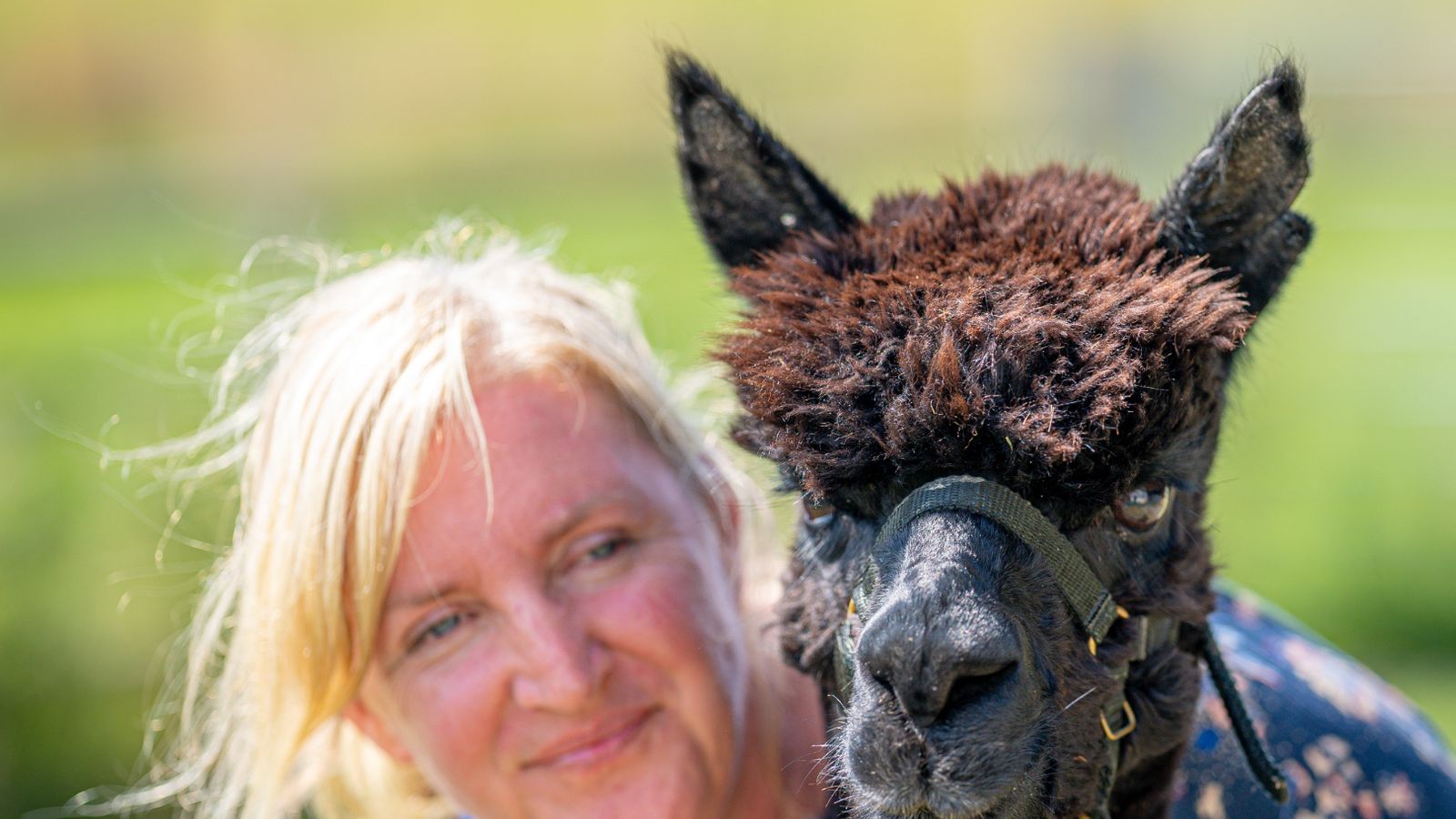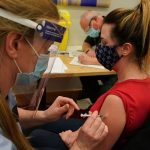The owner of Geronimo the alpaca says a “groundswell” of international support has given her “hope” for the condemned animal.
Helen Macdonald said she has received messages of support from New Zealand, Malaysia and across Europe in her fight to stop the animal being culled by the government after he twice tested positive for bovine tuberculosis.
Ms Macdonald claims the tests may be wrong and supporters have also been camping out at her farm near Wickwar, South Gloucestershire, in case officials from the Department of Environment, Food and Rural Affairs (Defra) arrive to destroy the alpaca.
“I’ve heard nothing from Defra, nothing from the ministers, nothing from the chief veterinary officer,” Ms Macdonald said.
“The groundswell of support from around the world and everything that everyone is doing gives me hope that Defra will look at this and say they don’t have any data for multiple priming in camelids and take a pause and look at this properly.”
Ms Macdonald and her supporters remain on “high alert” that Geronimo will be killed any day now.
On Wednesday, the High Court ruled the animal would be slaughtered, rejecting Ms Macdonald’s bid to get a temporary injunction to prevent the killing.
A destruction warrant is valid until 4 September but Ms Macdonald wants the government to allow Geronimo to be tested for a third time or let him live to aid research into the disease.
“There’s a movement here now and there’s anger, sadness and outrage about wrongdoing,” Ms Macdonald said.
“It’s just growing by the hour. The petition is growing, and the responses are growing.”
Ms Macdonald’s legal fight has been going on for the past four years, since the alpaca first tested positive for bovine tuberculosis in September 2017.
He has been in isolation ever since, according to the owner’s lawyers.
The veterinary nurse praised the assistance she has received from people who have travelled from all over the UK to her farm.
“We’ve been soldiering on for four years and to have this support is so wonderful,” she said.
Ms Macdonald and her legal team have argued that the testing system used on Geronimo is flawed, citing evidence that nine other animals who were tested in the same way showed no signs of the disease after they were slaughtered.
They claim that Defra knew about this and had not disclosed the information, which came to light as a result of a recent Daily Mail investigation.
She said: “What we are dealing with is not whether Geronimo has TB but the fact [authorities] knowingly misused tests to create a suspicion of disease and to kill him four years ago.
“There’s no science to back up what they’re saying, and we need to move forward in a positive way. Everyone is asking for that now, listen to the electorate and sit down and sort out this properly.”
Please use Chrome browser for a more accessible video player
Ms Macdonald accused Prime Minister Boris Johnson, Environment Secretary George Eustice and Defra officials of “hiding in plain sight” having heard nothing from any of them.
“I invite them to come and sit down and talk about it,” she said. “They don’t have any evidence and they can’t keep denying evidence from multiple priming or they would have shown it to us by now.
“It’s not fair and all we’re asking for is they use appropriate testing on camelids and stop treating them like cattle.”
Ms Macdonald, who imported Geronimo from New Zealand, has received an outpouring of support from the public, with more than 130,000 people signing a petition calling on the prime minister to halt the killing.
Ms Macdonald said that when Defra officials do attend her farm to euthanise Geronimo, she will not break the law.
As well as alpacas, badgers have been a victim of the fight against bovine TB, with mass culling employed to stop the spread since 2013, sparking a huge public backlash.
Last week, the government insisted all the evidence on the animal’s condition had been “looked at very carefully”.
A Defra spokesman said: “We are sympathetic to Ms Macdonald’s situation – just as we are with everyone with animals affected by this terrible disease.
“While nobody wants to cull animals, we need to do everything we can to tackle this disease to stop it spreading and to protect the livelihoods of those affected.”






















